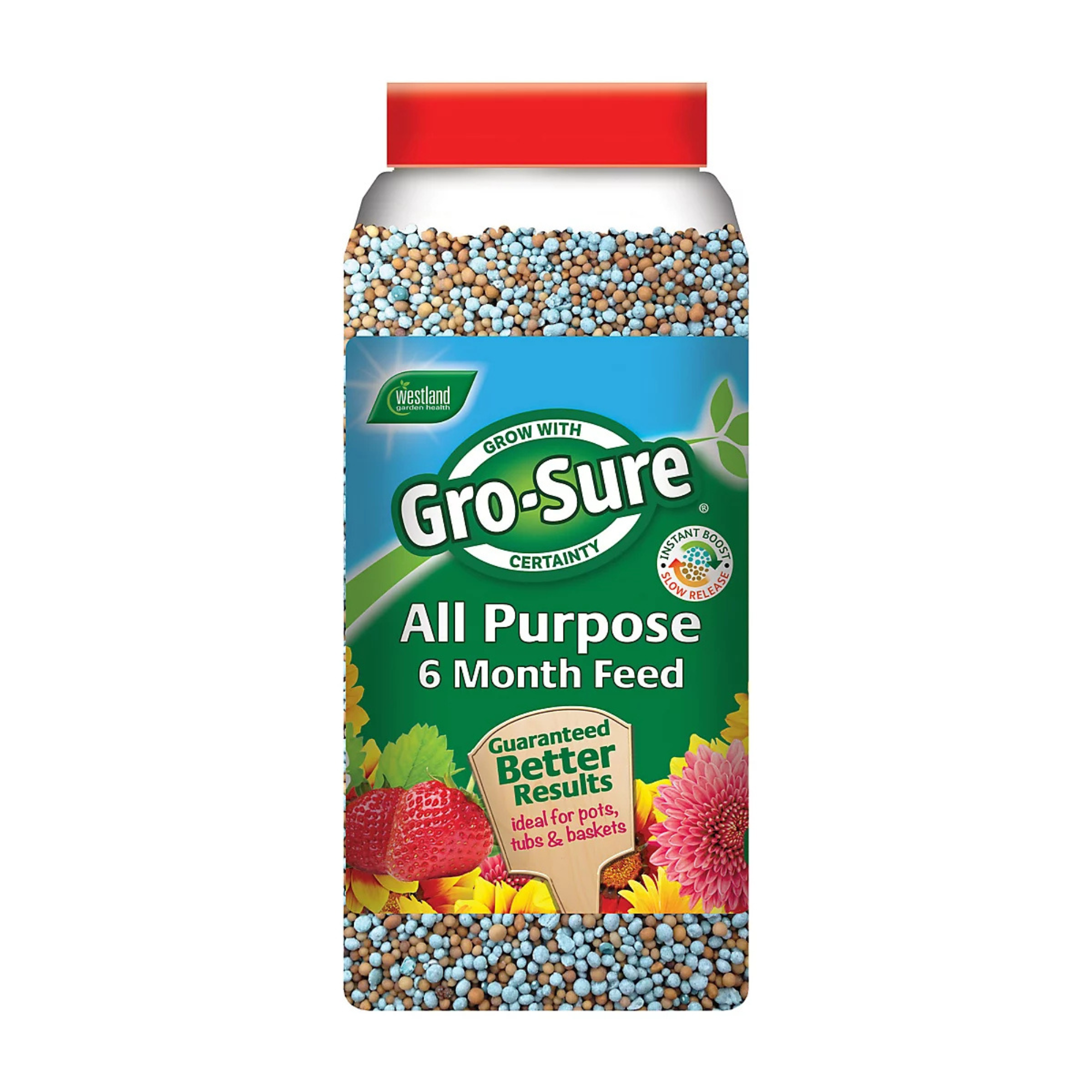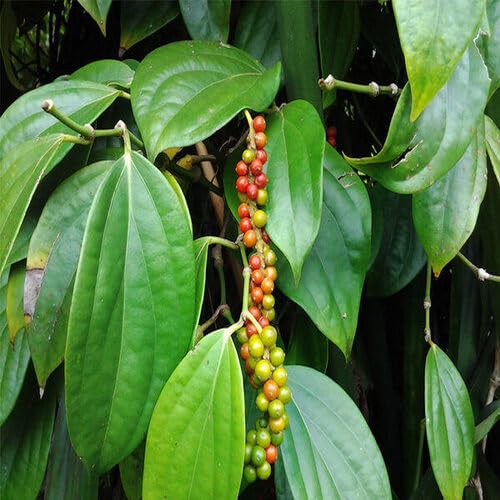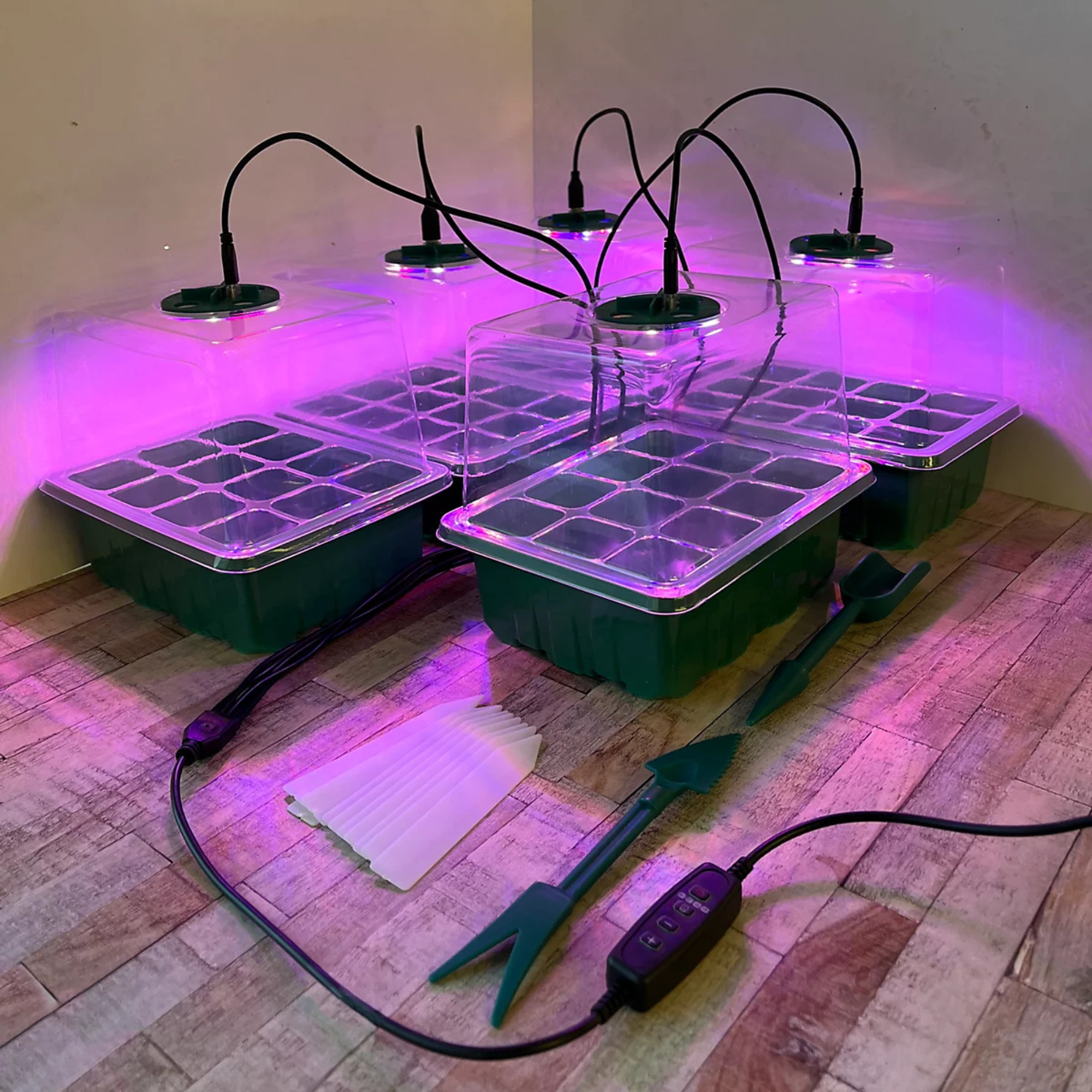How to grow black pepper – 5 steps to nail growing your own seasoning at home
With the right conditions, it's possible to grow your own supply of fresh peppercorns

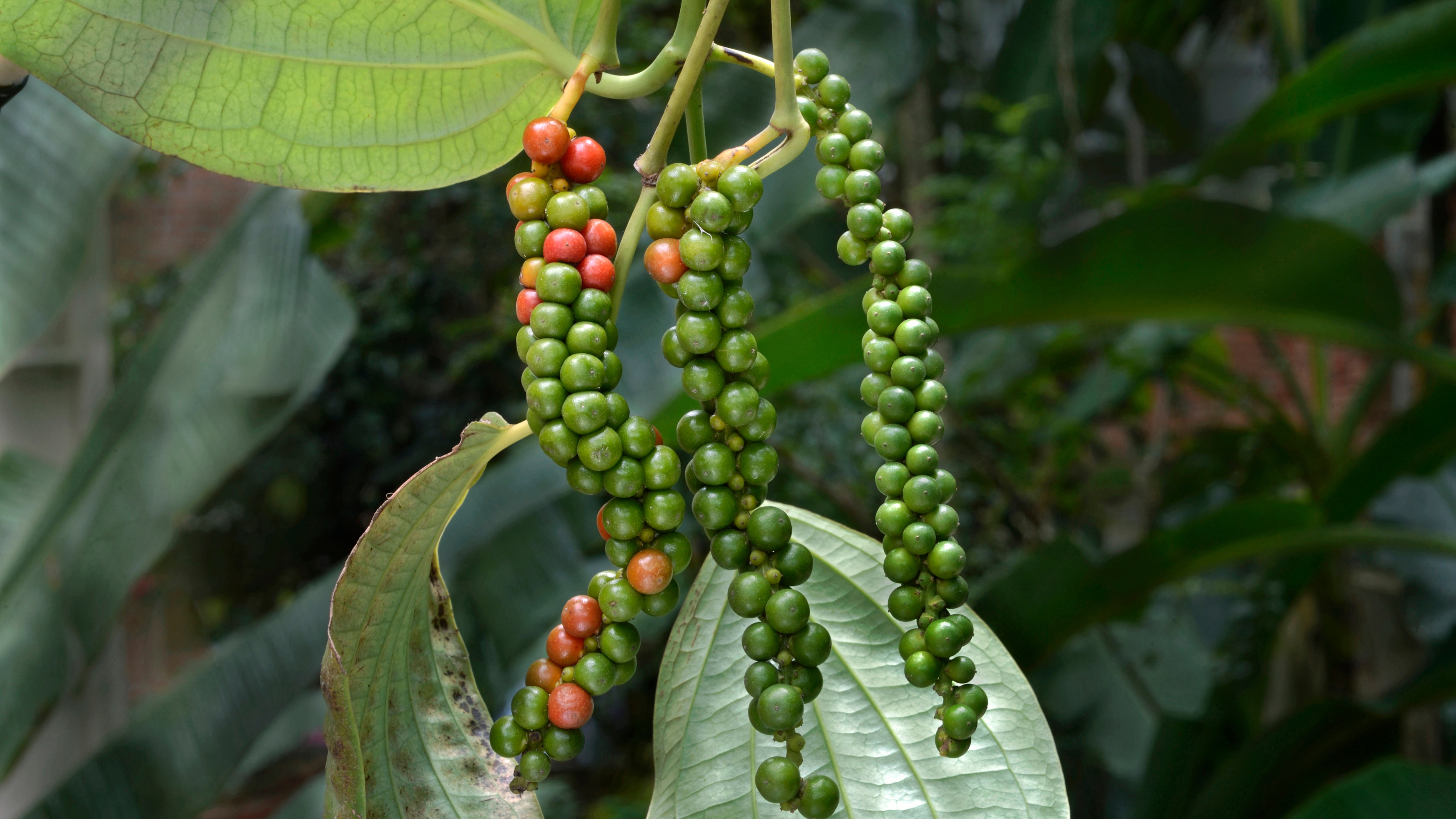
Sign up to our newsletter for style inspiration, real homes, project and garden advice and shopping know-how
You are now subscribed
Your newsletter sign-up was successful
No table set up is complete without the addition of a salt and pepper mill, and wouldn’t it be great if the pepper on your table came from your own garden? And the good news is that it can be because you can learn how to grow black peppercorns at home.
Nothing beats the taste of home-grown veggies, and if you’re aiming to live more self-sufficiently, knowing how to grow your own fruit and vegetables is a great place to start.
You’d be right in thinking that black peppercorns thrive in hotter climates, but this doesn’t mean you can’t successfully grow them in the UK. With the right conditions (and a lot of will power), you can have your own peppery crop on the table.
What you need
What conditons do you need?
I’m not going to pretend and say that growing peppercorns in the UK is easy. It is possible, but black pepper (also known as piper nigrum) requires a warm humid climate, which lets face it, the UK’s weather often lacks.
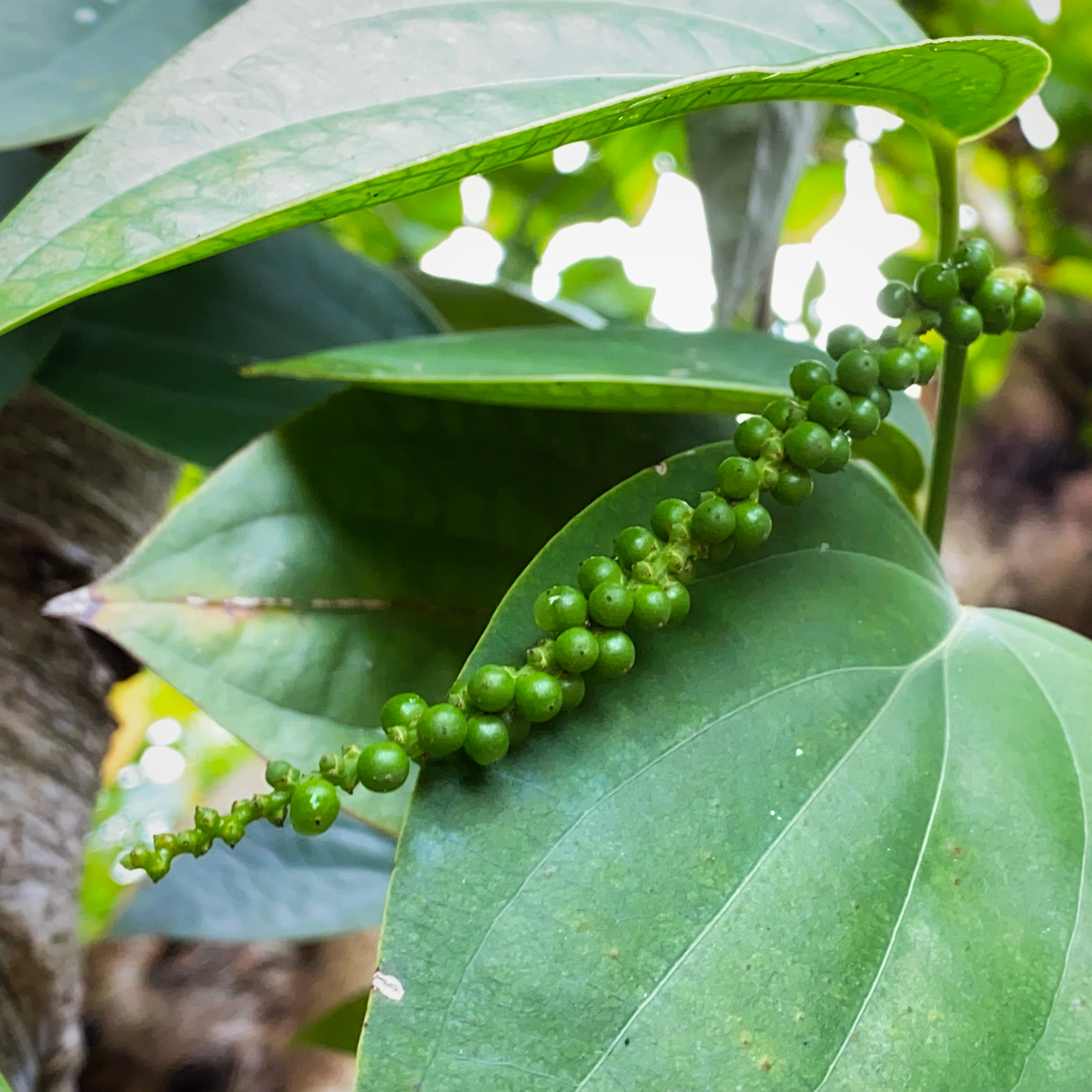
‘Although the pepper plant is native to India, it can be grown in the UK if it is provided with the right conditions. It is best to grow it somewhere warm where the plant will receive a lot of sunlight, and it can be grown outside provided that it is brought indoors during the winter months,’ says Richard Barker, commercial director of LBS Horticulture.
Black pepper is intolerant to frost and will not grow if the temperature drops below 15 degrees. Richard also recommends that it has conditions of 50% humidity to grow, so it is best suited to a well-insulated greenhouse. Black pepper also likes bright, dappled sunlight for a minimum of six hours a day.
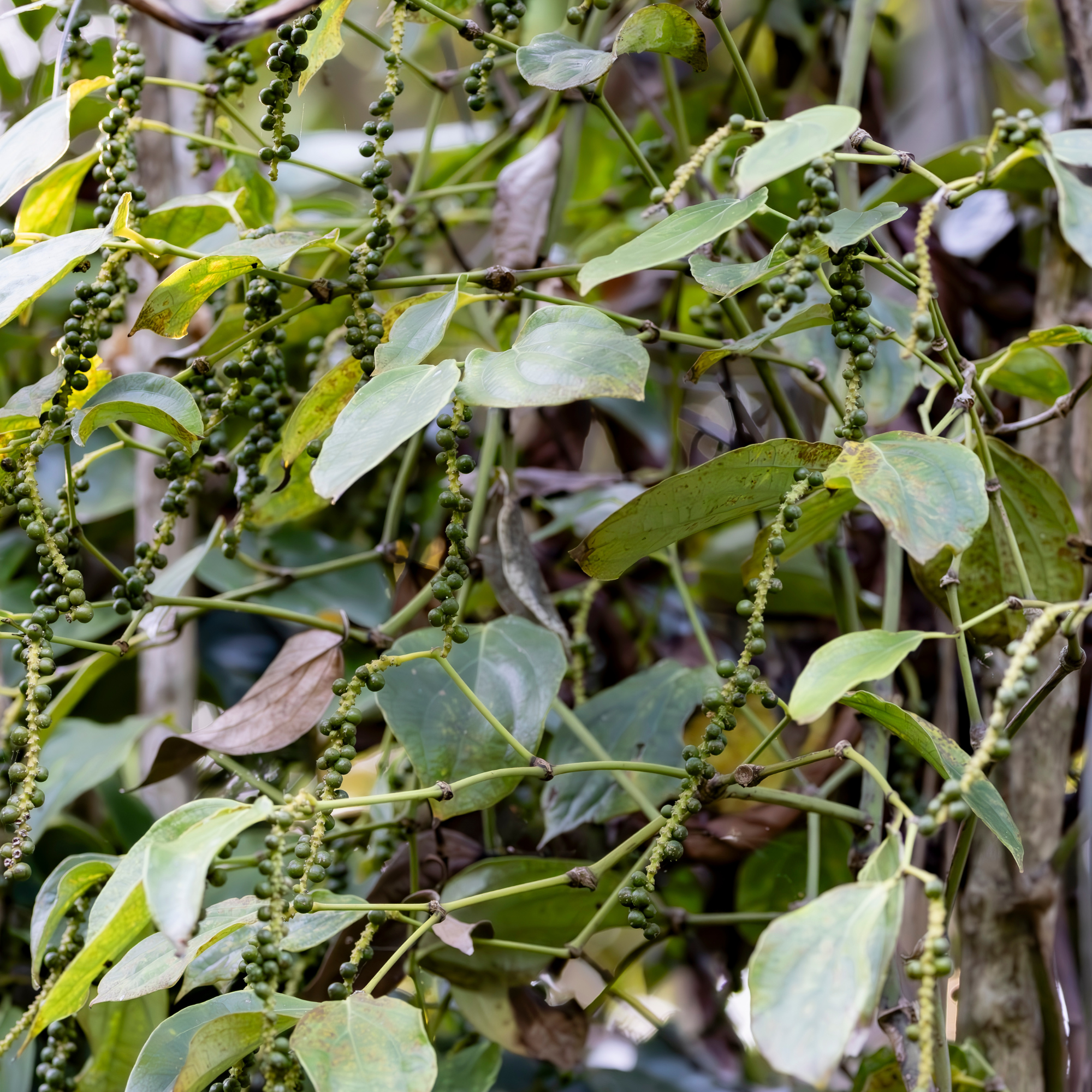
How to plant black pepper
Now you’ve established the best place to plant your black pepper, it's time to plant - and this can be done in two simple steps, according to the experts.
Sign up to our newsletter for style inspiration, real homes, project and garden advice and shopping know-how
1. soak the seeds
‘Before planting peppercorn seeds, soak the seeds for around twenty-four hours to soften the hard outer coating, as this can help the seeds to sprout,’ says Richard.
Neglecting to soak your black pepper seeds could be one reason why your seeds are not germinating so it’s important you don’t miss out on this step.
2. Sow the seeds in a nutrient-rich soil
‘Fill a 12 cm pot with equal parts peat-free compost, fine bark, and washed sand. Press 2 seeds 6 mm deep, water, and sit the pot on a 25°C heat mat. Germination takes 3-4 weeks. Keep the medium moist, but never wet. When each seedling reaches 15 cm, move it into a 20 L container of the same mix and add a sturdy metre-high cane; the vine twines early,’ says Erik Collado Vidal, horticulturalist and CEO of Growbarato.net
How often should you water black pepper?
‘You should water a peppercorn plant two to three times a week. The soil should not be left to dry out, but avoid overwatering as this can lead to root rot,’ says Richard.
You should also ensure you’re using well-draining soil and have an avenue for the water to drain as black pepper does not like sitting in standing water.
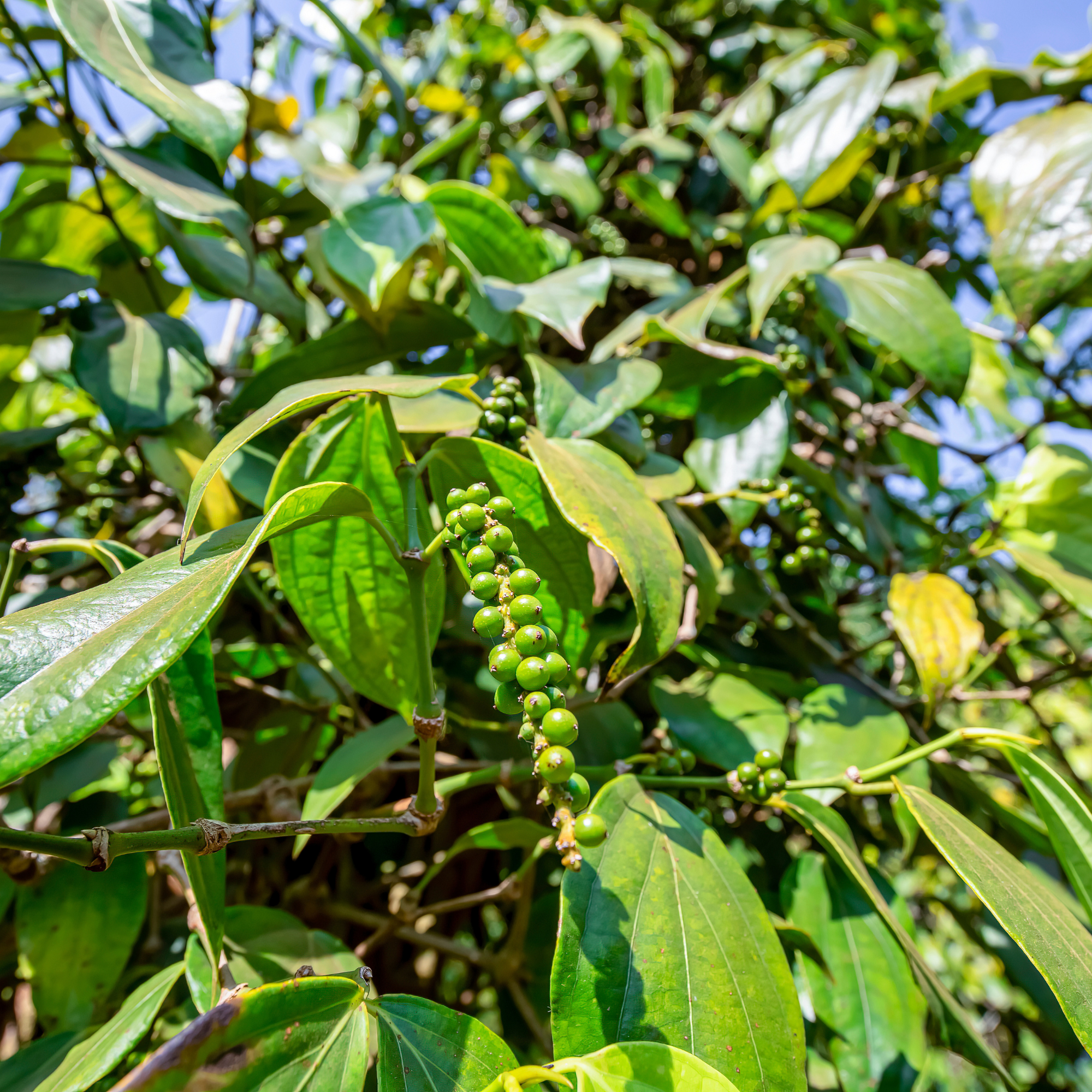
How often should you feed black pepper?
As well as regularly watering your plant, it’s also recommended that you regularly feed it with a good quality fertiliser.
‘Feed fortnightly from April to September with a balanced liquid fertiliser at ⅔ strength, switching to a bloom booster with higher potassium once flower spikes appear. In winter stop feeding; the vine rests and fertiliser salts would build up,’ explains Erik.
When can you harvest black pepper?
If you plant black pepper now, realistically you won’t have a crop for a few years while the plant establishes itself.
‘A seed-grown plant needs about 4 years before it flowers and sets green drupes. When the first berries on a spike blush red, cut the whole spike. Dry it on a mesh rack at 35°C for three days; the fruits shrink and turn black, giving the classic spice. Under good glasshouse management, the harvest window in Britain runs from late summer into early autumn,’ says Erik.
Once your plant is ready for harvest, you’ll be able to enjoy homegrown seasoning on all your meals - which will taste even better knowing it has come from your own garden.
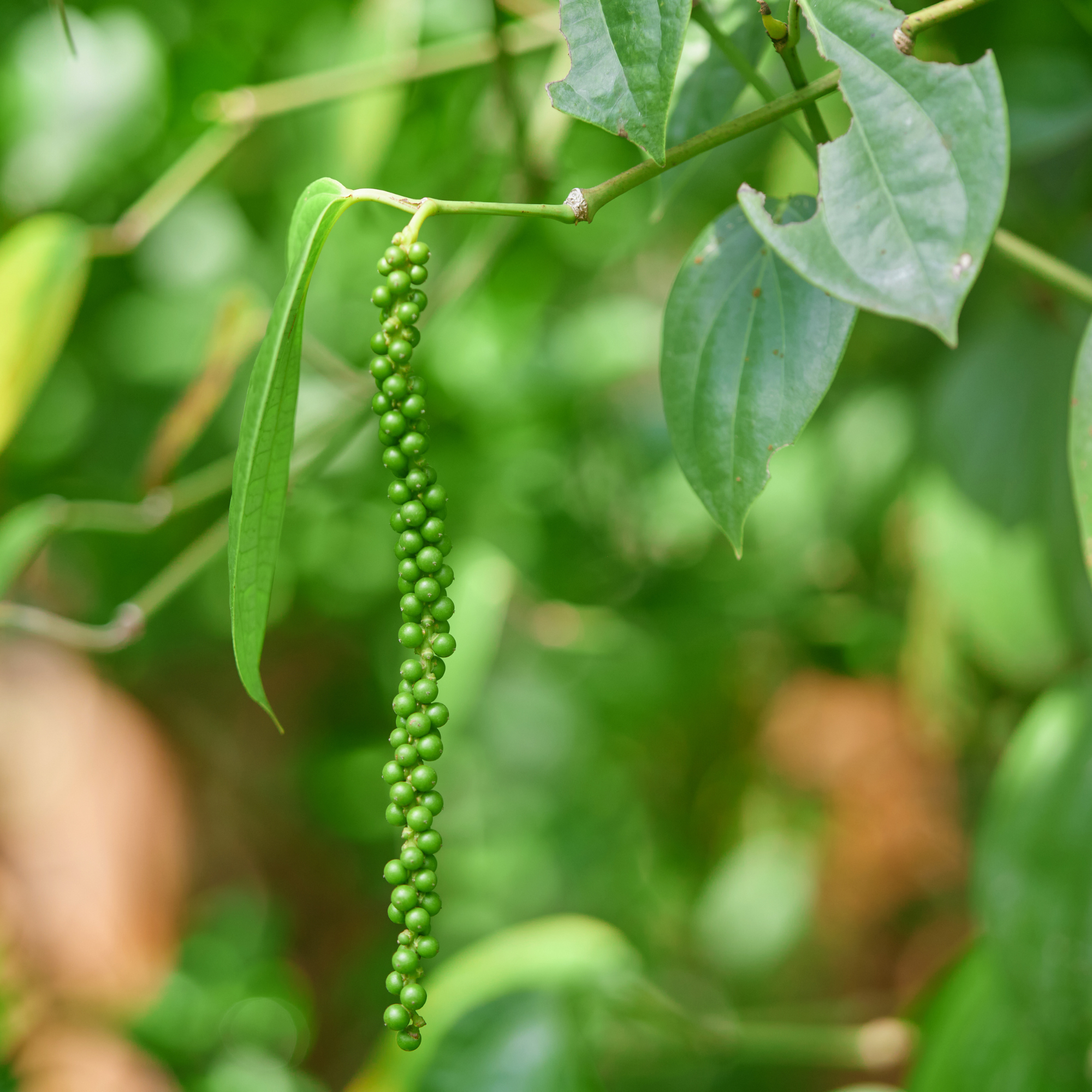
Can you plant store bought peppercorns?
Unfortunately the peppercorns you pick up at your local supermarket are not suitable for planting in your garden.
‘If you want to grow black peppercorn, you will need to source the seeds from a specialist garden centre or plant nursery. You cannot try to grow a peppercorn plant from peppercorns bought at a supermarket, as the way in which the peppercorns are processed and dried means that they are very unlikely to grow,’ says Richard.

Kezia Reynolds joined the Ideal Home team as News Writer in September 2024. After graduating from City, University of London in 2022 with a bachelor’s degree in journalism, Kezia kicked off her career spending two years working on women’s weekly magazines. She is always on the lookout for the latest home news, finding you the best deals and trends - so you don’t miss a thing!
